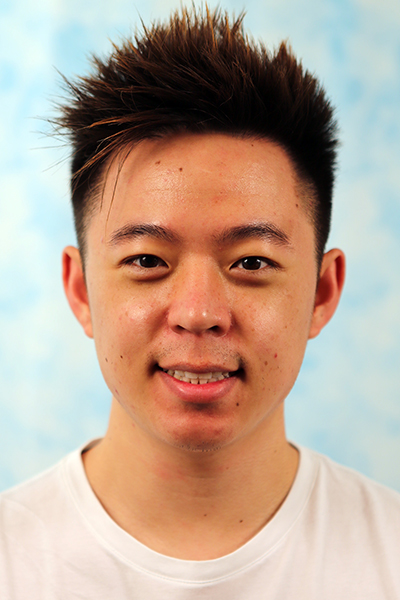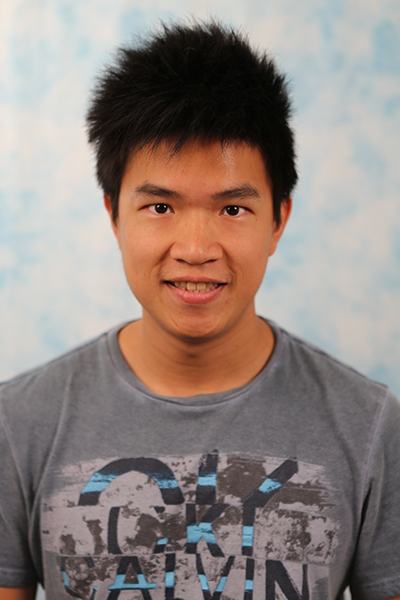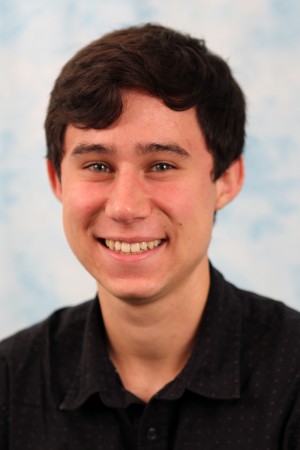Causal Reasoning in Simulation for Structure and Transfer Learning of Robot Manipulation Policies
Abstract: Real-world environments, such as homes, hospitals, and restaurants, often contain many objects that a robot could possibly manipulate. However, for a given manipulation task, only a small number of objects and object properties may actually be relevant. This talk presents CREST (Causal Reasoning for Efficient Structure Transfer), our approach to learn the relevant state [...]
Grasping Transparent, Specular, and Deformable Objects
Abstract: A large body of research exists on grasping for objects with ideal properties like Lambertian reflectance and rigidity. On the other hand, real-world environments contain many objects for which such properties do not hold, such as transparent, specular, and deformable objects. For such objects, new approaches are required to achieve the same level of [...]
Carnegie Mellon University
Auto-generated Manipulation Primitives
Abstract: The central theme in robotic manipulation is that of the robot interacting with the world through physical contact. We tend to describe that physical contact using specific words that capture the nature of the contact and the action, such as grasp, roll, pivot, push, pull, tilt, close, open etc. We refer to these situation-specific [...]
Carnegie Mellon University
Learning 3D Registration and Reconstruction from the Visual World
Abstract: Humans learn to develop strong senses for 3D geometry by looking around in the visual world. Through pure visual perception, not only can we recover a mental 3D representation of what we are looking at, but meanwhile we can also recognize where we are looking at the scene from. Finding the 3D scene representation [...]
Point Cloud Registration with or without Learning
Abstract: I will be presenting two of our recent works on 3D point cloud registration: A scene flow method for non-rigid registration: I will discuss our current method to recover scene flow from point clouds. Scene flow is the three-dimensional (3D) motion field of a scene, and it provides information about the spatial arrangement [...]
Carnegie Mellon University
Development of an Agile and Dexterous Balancing Mobile Manipulator Robot
Abstract: The proposed thesis work focuses on the design and control of a new unique agile and dexterous mobile manipulator, the Carnegie Mellon University (CMU) ballbot. The CMU ballbot is a human-sized dynamically stable mobile robot that balances on a single ball. We present the development and integration of a new pair of seven-degree-of-freedom (7-DOF) [...]
Carnegie Mellon University
MSR Thesis Talk: Shengcao Cao
Title: Efficient Model Performance Estimation via Feature Histories Abstract: An important step in the task of neural network design, such as hyper-parameter optimization (HPO) or neural architecture search (NAS), is the evaluation of a candidate model's performance. Given fixed computational resources, one can either invest more time training each model to obtain more accurate estimates [...]
Dynamical Robots via Origami-Inspired Design
Abstract: Origami-inspired engineering produces structures with high strength-to-weight ratios and simultaneously lower manufacturing complexity. This reliable, customizable, cheap fabrication and component assembly technology is ideal for robotics applications in remote, rapid deployment scenarios that require platforms to be quickly produced, reconfigured, and deployed. Unfortunately, most examples of folded robots are appropriate only for small-scale, low-load [...]
Carnegie Mellon University
MSR Thesis Talk: Steven Lee
Title: Learning to Represent and Accurately Arrange Food Items Abstract: Arrangements of objects are commonplace in a myriad of everyday scenarios, such as decorations at one’s home, displays at museums, and plates of food at restaurants. An efficient personal robot should be able to learn how to robustly recreate an arrangement using only a few [...]
Carnegie Mellon University
MSR Thesis Talk: Amrita Sawhney
Title: Learning to Perceive and Manipulate Diverse Food Materials Through Interaction Abstract: The home kitchen environment presents many challenges for an autonomous cooking robot, such as the deformability of food items, the wide range of material properties of food, and the complex interaction dynamics involved in food manipulation tasks. Material properties are important when interacting [...]
Carnegie Mellon University
MSR Thesis Talk: Haidar Jamal
Title: Localization for Lunar Micro-Rovers Abstract: This talk presents an avionics and localization system that enables a lunar micro-rover to navigate autonomously. This system is important for the latest class of small, low-powered, and fast robots going to the Moon in search of polar ice. The first component of the system is an Extended [...]
PoseIt: A Visual-Tactile Dataset of Holding Poses for Grasp Stability Analysis
Abstract: When humans grasp objects in the real world, we often move our arm to hold the object in a different pose where we can use it. In contrast, typical lab settings only study the stability of the grasp immediately after lifting, without any subsequent re-positioning of the arm. However, an object’s stability could vary [...]
Planning to Minimize Human and Robot Efforts Over Tasks
Abstract: It is not feasible to pre-program robots a priori for every possible task they may encounter in unstructured domains. Upon encountering a task that a robot can't solve, one common strategy is to teach it new skills via demonstrations. However, demonstrating a task can often be more cumbersome than performing the task directly. This [...]
MSR Thesis Talk: Akash Sharma
Title: Incorporating Semantic Structure in SLAM Abstract: For robots to understand the environment they interact with, a combination of geometric information and semantic information is imperative. In this talk, I propose a fast and scalable Simultaneous Localization and Mapping (SLAM) system that represents indoor scenes as a graph of semantic objects. Leveraging the observation that [...]
Propelling Robot Manipulation of Unknown Objects using Learned Object Centric Models
Abstract: There is a growing interest in using data-driven methods to scale up manipulation capabilities of robots for handling a large variety of objects. Many of these methods are oblivious to the notion of objects and they learn monolithic policies from the whole scene in image space. As a result, they don’t generalize well to [...]
Carnegie Mellon University
Yaadhav Raaj MSR Thesis Talk
Title: Exploiting Uncertainty in Triangulation Light Curtains for Object Tracking and Depth Estimation Abstract: Active sensing through the use of Adaptive Depth Sensors is a nascent field, with potential in areas such as Advanced driver-assistance systems (ADAS). One such class of sensor is the Triangulation Light Curtain, which was developed in the Illumination and Imaging [...]
Carnegie Mellon University
Active Vision: Autonomous Aerial Cinematography with Learned Artistic Decision-Making
Abstract: Aerial cinematography is revolutionizing industries that require live and dynamic camera viewpoints such as entertainment, sports, and security. Fundamentally, it is a tool with immense potential to improve human creativity, expressiveness, and sharing of experiences. However, safely piloting a drone while filming a moving target in the presence of obstacles is immensely taxing, often [...]
Fine-Tuning Offline Reinforcement Learning with Model-Based Policy Optimization
Abstract: In offline reinforcement learning (RL), we attempt to learn a control policy from a fixed dataset of environment interactions. This setting has the potential benefit of allowing us to learn effective policies without needing to collect additional interactive data, which can be expensive or dangerous in real-world systems. However, traditional off-policy RL methods tend [...]
MSR Thesis Talk: Zhipeng Bao
Title: Introducing Generative Models to Facilitate Multi-Task Visual Learning Abstract: Motivated by multi-task learning of shared feature representations, this talk considers a novel problem of learning a shared generative model that can facilitate multi-task learning. We present two systems to utilize generative modeling for other visual tasks. The first system focuses on learning a generative [...]
Carnegie Mellon University
MSR Thesis Talk: Shanshan Jessy Xie
Title: GPU based perception via search for object pose estimation with RGB data Abstract: Known object pose estimation is essential for a robot to interact with the real world. It is the first and fundamental task if the robot wants to manipulate the object. This problem is particularly challenging when the environment is complicated [...]












